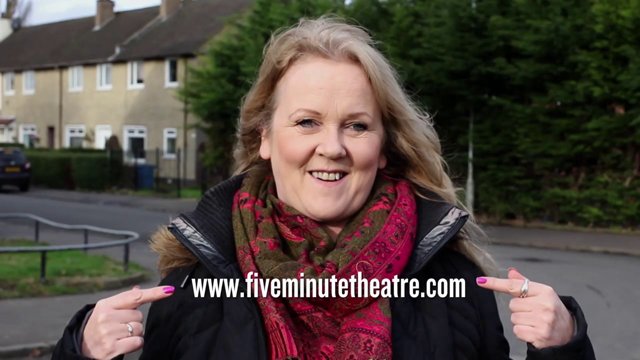With the growing temptation of whipping out your smart phone and flicking through the internet suggested to have a link to the diminishment of attention spans, it is perhaps wise the National Theatre of Scotland’s second (the first being Dear Scotland) exploration of the impending vote is made up of over 180 short submissions. Descriptively (if not succinctly) named The Great Yes, No, Don’t Know Five Minute Theatre Show, the project is clear in its aims.
Earlier in the year, NTS had open submissions for five-minute plays about Scottish independence from people wanting to creatively express their opinion. Rather than favouring either side of the fence, NTS are cleverly using their tried and tested Five Minute Theatre structure, to imaginatively and appropriately reflect their status as a national body. The end result sounds akin to a live performance forum, where one after the other, people can have their say without the fear of reprimands, and every opinion is given equal weight.
Scheduled to run for 24 hours, a selection of different live performances can be seen at various hubs around Scotland (see full details here) and in addition, there will be numerous live and pre-recorded pieces available to stream throughout the 24-hour period. The live proceedings start at Glasgow’s Òran Mór at 5pm on Monday 23rd June and the last of the 840 performers will take their bow at 5pm on Tuesday 24th June at Edinburgh College, one of two hubs in the capital. Co-curated by David Greig and David MacLennan, it feels fitting that in the wake of MacLennan’s sad passing, the venue he was so closely associated with is launching this powerful political exploration, with MacLennan’s own writing being used.
Keeping the project fully democratised, well-known faces of Scotland’s theatre industry (including Graham Eatough, Julia Taudevin, Solar Bear’s Deaf Youth Theatre, Village Pub Theatre, Aberdeen Performing Arts) are scheduled alongside members of the public, with amateur writers including primary school children, poets, families and artists. Even people overseas have been joining in, with texts originating from locations as far as Mumbai and Texas. This global interest reflects how, although it’s a decision for Scotland, it’s a universal conversation. There are movements the world over (Catalonia, Quebec, Hawaii) striving for independence from a nation state, and Scotland has the potential to become a symbol of freedom for many of them.
As well as theatre, David Greig will host six fifteen-minute Q&A sessions on the subject of ‘The past, present and future of Scottish political theatre’, ably assisted by a selection of relevant guests. And as a kind of epitaph, Edi Stark will present a documentary about the project as a whole on BBC Radio Scotland, July 9th at 1:30pm, featuring interviews with Greig, MacLennan and other participants. The creative crowd-sourced project offers a chance to get away from the slanderous and petty elements emanating from both political campaigns, and give voice to the people who struggle to be heard but have every right to speak up.
